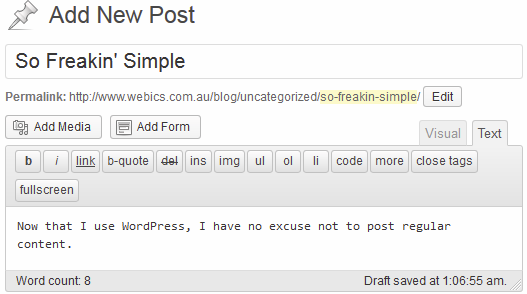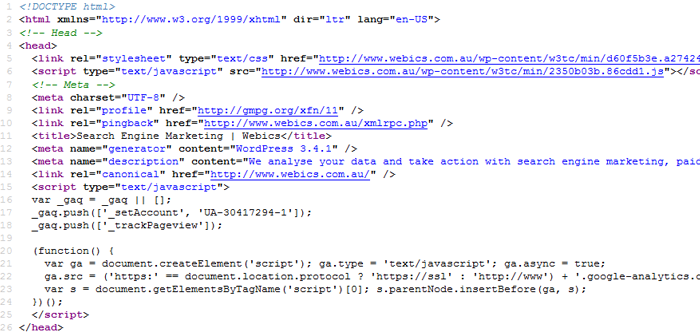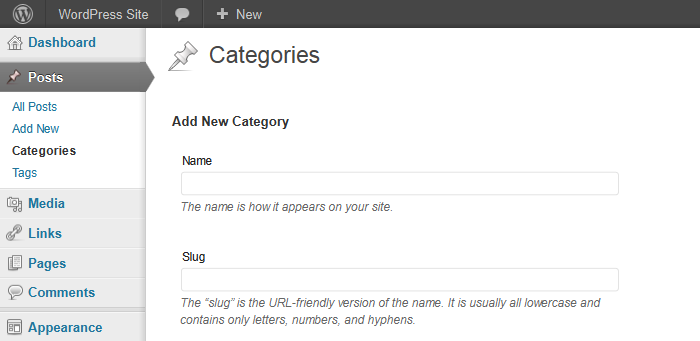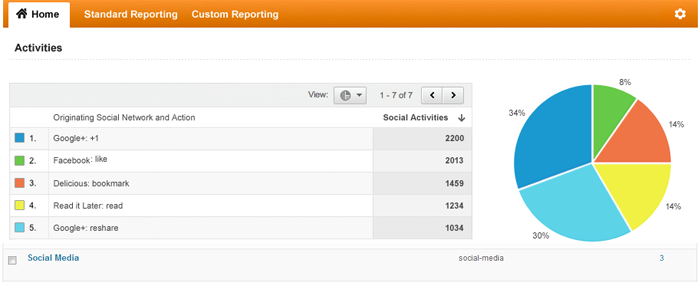Anyone in the SEO industry would have heard over and over, “WordPress is the best content management system for SEO”. While that statement might be a little bit bold, whoever told you that might be onto something.
This post will walk you through and highlight some of the key reasons why WordPress may be the best choice of content management system for businesses wanting to improve on their rankings in the SERPs.
Content is king, WordPress is the king of content
Adding new content to your WordPress website is super simple. Given that all the search engines really want from you is interesting content, the fact WordPress is the arguably the simplest tool for managing content is quite obviously going to help you get on Google’s good side.

Customise your permalinks
Being able to place relevant keywords in your URL’s is extremely valuable. Rather than letting Google think that your post is relevant to “post9803483” or whatever standard value it is given, Google can read that your post relevant to the keywords in the URL.

For example, if your post is about managing staff, your permalink should be example.com/staff-management. Also, steer clear of using underscores because Google will see the entire phrase as one word.
Super Clean Code
Now this does depend on what theme you are using. Some of the free themes you find in the far and wide corners of the internet are likely to contain a lot of vomit worthy code. But, if you go out of your way to have a theme specially made by a WordPress developer or even just by a readymade theme from a trusted source, the code is going to be squeaky clean and really SEO friendly.

SEO friendly website structure
This point mostly refers to the categorisation that goes on within your website. When you make a new post, it can be added to a category which can have a parent category. A post can have tags added to it and also be categorised by Author.
Mapping your website like this makes it so much easier for Google to find their way around and know exactly where they are.

Inbuilt RSS feeds
Every single WordPress blog has its own RSS feed. This feed can be submitted to feed directories meaning Google can find and index all of your new posts in no time at all. The more often Google finds your new content, the more they will keep coming back to check out your website.
Image optimisation
Google does not read your images; they do however read the image code. The open source nature of the software means you are not limited in terms of your on pages optimisation in any way. WordPress users have total control over their image titles, alt text and image hyperlinks.
The ability to track everything
Touching back on the open source nature of WordPress, it is possible to implement Google Analytics to its full potential. There is not one section of code in your website that you cannot touch. This means that you are able to use Google analytics to determine where your SEO efforts are best spent and what you can do to convert more visitors.

WordPress is certainly the most SEO friendly content management system available to the public. The fact that everything is interchangeable means that every facet of the website can be adjusted to suit target keywords. It was not mentioned earlier in this post because it is not a standard feature of WordPress, but there are a few very reputable SEO “Checklist” style plugins that can be used to assist with on-page optimisation.
You start a blog because you want to write about your passion, not because you want to spend hours analysing your website for on-page SEO. If you want to make blogging simple and still have the opportunity to rank well, choose WordPress. Also, if you are paying a developer insist on WordPress.




